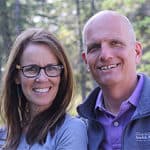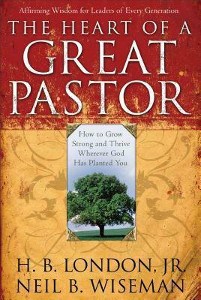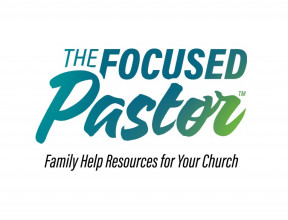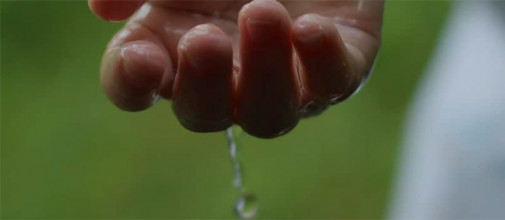Preview:
Pauline Doerksen: I don’t want to be in ministry. I don’t want to fix this so that I have to go back to church.
Jim Daly: So you were done.
Pauline: I wanted to be – have permission to leave church.
Jim: Huh, wow.
Pauline: And I wasn’t prepared to engage with people. I didn’t want to meet new people. I didn’t want to put the smile on and have the, “Hi, I’m Pauline,” and yeah. I didn’t have any…
Jim: No, I appreciate that.
Pauline: …Space for any…
Jim: Your tank was empty.
Pauline: It was – it was done.
End of Preview
John Fuller: This is Focus on the Family, and today you’ll hear about the unique challenges and stresses that pastors face, and how you can help and encourage those who serve in your local church. I’m John Fuller, and your host is Focus president and author Jim Daly.
Jim: John, I don’t know that we think enough about our pastoral care folks, and sometimes that’s taking them for granted. And today, we want to concentrate on how they’re serving, what the pressures are for them and for their families, and what we can do to encourage our pastors. October is Clergy Appreciation Month, a time when we recognize and celebrate our pastors and their families. Just think about everything a pastor is trying to do – counseling and praying over hurting families, visiting people in the hospital and the shut-ins, uh, teaching and preaching, of course, and I would think feeling graded every Sunday. Was it a good sermon? Or maybe it was a D-minus. I mean, you’re saying bye to people at the door and you’re looking at them saying, “Okay, did I hit the mark?” I mean, it’s got to be very, um, you know, difficult at times. And I know pastors feel under tremendous pressure. And we want to talk about that today, one, so you’re aware of it, and two, we have a solution that you might be able to help pastors do better.
John: Yeah, and there’s that loneliness that occurs and so often, uh, families take a toll when mom and/or dad – usually both – are serving the church. And, uh, we want to strengthen that – that family that is serving the church because, as they do, the families on the other end of that process are going to be strengthened as well.
Jim: John, too, you think about it, 85 percent, um, of pastors lead churches with less than 200 people in them. They’re not the mega church pastor with lots of resources and lots of help. Most churches, the pastor and maybe his family are doing a lot of the work. And again, we want to speak to you, um, as you are led by them, and maybe you are the pastor. We certainly want to help you and point you in a good direction as well.
John: Yeah. So we have a panel of guests today in the studio, and they’re gonna to describe offering hope and godly encouragement to pastors and their spouses through the retreat centers they direct. There are retreat centers across the U.S. and Canada that really reach out and help church and ministry leaders, and we’ll post a list of those ministries at focusonthefamily.com/broadcast.
Marshall and Merrie Eizenga are with us. And they served as pastors for 35 years in Ontario, Canada, and they co-direct the Kerith Creek Retreat Center in Alberta. And we also have Sam and Pauline Doerksen. They were pastors for 22 years, and they now co-direct the Kerith Pines Retreat Center in Manitoba.
Jim: Well, let me say welcome to all of you to Focus.
Merrie Eizenga: Thank you.
Marshall Eizenga: Thank you.
Sam Doerksen: Thanks.
Pauline: It’s good to be here.
Jim: Now, did we describe that pretty well? I mean, you have been pastors for many years, and you’ve counseled pastors for many years. Did I miss anything, or was that a fairly good description?
Marshall: No, what I would add to that, as you were talking, is the fact that pastors are really first responders.
Jim: Hm.
Marshall: When you think of what they do. You talked about counseling, and those counseling opportunities come not only in an office. It can come in the hospital room. It can come around a coffee table. And as people pour their hearts out to the pastor, pastor hears a lot of things, carries a lot of weight. And that can – that’s a tremendous burden at times to carry.
Jim: What are some of those, uh, routine things that we as lay-people may not understand that really do lay a heavy emotional burden on a pastoral couple?
Sam: What I think is, uh, there’s this vicarious trauma in a sense. So we’re walking alongside people that are in the hospital and other places and, um, we’re affected by that. People, pastors, are affected by, uh, caring for others. It’s not without an effect. And I think of John chapter eight – pardon me, Luke chapter eight where, uh, Jesus is walking in the crowd and a lady – the woman touches Him, and she’s healed. And He turns around and says, “You know, I felt that some power left me. What happened? Who is that?” It does take something. We’re affected by it. Now, that’s Jesus, and we are human pastors. Uh, we will be affected by helping others and in the way we help them. We need be careful about that.
Jim: Well, that’s so true.
Merrie: I think it’s a cumulative effect, too, right? There’s – it’s year after year and decade after decade of trauma. And one of the things that really affected Marshall and I is we had, um – we were in one church for 28 years. And while we were there, we lost three staff members. And so we were helping a congregation grieve. And, yeah, we were so deeply affected by the loss of our friends and our staff. And yet, we had to be strong for everyone else, and that to – you know, it’s trauma that we carried personally.
Jim: Hm.
Pauline: I think another dynamic that happens when you’re coming alongside families and you’re in the heat, if you will, the heat of the trauma, the heat of the despair and the grieving, and you come home and your family didn’t know what you had to face today…
Jim: Right.
Pauline: …And they want to engage with you and yet you’re trying, but you can’t. And so it affects not only the pastor and his wife or his spouse, but your kids sense that something’s off, but they don’t know what happened. And so that’s an interesting dynamic that other families may not be aware of that happens.
Jim: Yeah. And you know, being a pastor’s spouse – I mean, that’s really critical to what demand. How did you feel in that role? Um, you know, often to me, there is a sense of having to be perfect, making sure everything is exactly right, making sure the kids behave perfectly. I mean, that’s an amazing amount of pressure. How do you not take the bait?
Merrie: Well, it was a challenge, no question. I was a preacher’s kid, and so I saw my mom, the weight – carry the weight of that. So I think I went into ministry with some additional baggage. Um, but as I grew – and I think it depends on which church, right?
Jim: Sure.
Merrie: Which church you’re in, what environment you’re in, how much they expect. We were in a larger church, multi-staff, so I didn’t carry the weight of that. Sometimes they weren’t even sure who was the lead pastor’s wife. And that was a help to me.
Jim: Yeah.
Merrie: But there were certainly times of real loneliness. And who does the pastor’s wife tell that she’s lonely or she’s struggling? And, um, that was a challenge for me.
Jim: How did you solve that? What advice do you have to the pastor’s wife who’s listening?
Merrie: You know, what? I went to God, and I said, “Lord, I really need a close friend.” And um, for me, I had to find it outside my church.
Jim: Yeah.
Merrie: Another – it was another pastor’s wife, and the Lord dropped a name in my heart and I said to her – we actually went for coffee, and I said, “Do you want to be my friend?” And she said, “Yeah. Do you want to be my friend?” It was like junior high.
John: Oh, my goodness.
Merrie: And, yeah, she was a gift to me and, uh, God gave her to me.
Jim: Let me paint a picture for those who are saying, “You know, I don’t even know the world of my pastor. I maybe shake his hand on the way out the door or maybe say hello occasionally.” But, um, let me give you some data and have you respond to it. Um, this is research that showed that 50 percent of pastors have said they would quit if they could – 50 percent. That right there should be a jaw dropper. Seventy percent, um, have a lower self-esteem now than when they started in the ministry. Something is unhealthy there. That shouldn’t be the way it goes. What’s fueling that kind of discouragement, do you think?
Marshall: I think there’s expectations that a board can have of a pastor, expectations of congregants, and then there are your own expectations. And sometimes what can happen, what we see and hear, is that people can be – trying to meet those expectations, and they’re owning somebody else’s expectations. And you can never satisfy people.
Jim: Hm.
Marshall: You know, we – I remember one of our mentors said to us, “You know, that 15 percent of the congregation isn’t going to like you on a particular Sunday.” And…
Jim: Think of that.
Marshall: Yeah.
Jim: I mean, again, just say that again. Fifteen percent…
John: You walk into work knowing that, yeah.
Jim: …they’re not gonna like you.
Marshall: They’re not going to like you, and the next Sunday, it’ll be a different 15 percent.
Jim: Because of what you’re saying?
Marshall: Because what you’re saying or something you did or something you didn’t do in a service that you did the week before that they liked.
Jim: Right. Let me – let me interject here. Have you found that oftentimes it’s because you’ve touched a raw nerve? I mean, they’re responding because you’ve really opened something up that’s a wound.
Marshall: Yeah.
Jim: Isn’t that true?
Marshall: That would be very true.
Jim: I would think most of the time that’s accurate. You’re stepping on something that maybe they haven’t dealt with yet or…
Pauline: Well, isn’t that part of a struggle, right? You’re – so you’re their pastor.
Jim: Right.
Pauline: And you can – you want to shepherd them and you want to guide them and direct them. At the same time, they’re not treating you in a way that is making you feel like you want to shepherd them!
(LAUGHTER)
Jim: Well – and that’s the human side of the whole thing.
Pauline: Yeah, exactly.
Sam: If there’s respect and they come and talk to you where you can see them and you’re face to face and you’re not speaking through the bush and that kind of thing, that is the best way to go. Let’s be honest about it. What is the – the issue that you have? Then we can have a conversation about it.
Jim: Right.
Sam: But otherwise we can’t because as pastors I think it’s really important for us to also understand our humanness.
Pauline: Yeah.
Jim: Oh, I thought you were talking marriage advice.
(LAUGHTER)
Yeah, this is pastors and congregants, not husbands and wives. Um, you actually have an incredible story about your situation, the pressure that you two are under and you went to Kerith Creek. You actually experienced it, I think, in 2011, right?
Sam: Yeah.
Jim: But, um, Sam, what were you doing? What was the situation?
Sam: We’d been in, uh, the pastorate for 19 years at that point, and we were getting tired. I would say the word exhausted would probably be a good word. And, uh, there was just a number of things going on – uh, health issues in my family and we were in the middle of a church-building project, and there was tensions and conflicts in our, uh, leadership team. And so all of those things together – not just the ministry, but all of those things together, uh, really made us tired, made me tired. And I felt pretty exhausted and wasn’t sure what to do about it. And so I remember going to a physician and talking to him, and he took 45 minutes with me, uh, just talking about this kind of thing and whether there was some depression involved and so on. And then about two months later, I was sharing my story with someone else, and, uh, I said, “You know, sometimes I’m just laying on the couch or on the floor I’m not quite sure what to do.” And he looked at me. He said, “Sam, I don’t know how to answer your question. Or I don’t know how to solve your problem, but just let me – next time you feel like that, give me a phone call, and I’ll come and lay down beside you.”
Jim: Huh.
Sam: And for me, it was just an “aha” moment, a God moment, that helped me understand that he believed me. And now, we could work with it.
Jim: Yeah.
Sam: But until that point, you just felt like, “Where do I go from here? What do I do?”
Jim: Pauline, how do you shore that up? You see your husband in that situation. Of course, you’re carrying that burden as well and – but probably feeling like, “I’ve got to be everything here.”
Pauline: Well, I definitely felt the pressure to – you know how it is when you’re married and your spouse is at a lower point. You want to be more positive, more optimistic and carry more. And often that vacillates, right? So one is down and the other is up. And – but we found our self at the place we were both down. I just didn’t have energy either to – to encourage Sam because I wasn’t feeling that much encouraged either. In fact, I was getting more and more angry. You know, it’s one thing to – to deal with the needs that people have in lives of unbelievers. But when tension comes within believers, that threw me through a loop. I didn’t expect that.
Jim: Yeah.
Pauline: And with the degree that it went…
Jim: So it was discouraging?
Pauline: It did, and it rocked my faith. I was like, “Lord, you know, you’ve called us here, and you’ve called them here, and why is there tension? Why can’t we, um – it shouldn’t be this way. We’re your church.”
Jim: And that’s probably why you see that number of 50 percent would do something else if they could – 50 percent of pastors. Seventy percent feel less equipped now than when they started in the ministry and more discouraged. Kerith Retreat, um, describe that experience for yourselves given the low point that you’re both in. So you went to Kerith in 2011 as pastors, as a pastoral couple. Engaging it, what was it like? Why did it help you?
Sam: We walked to the front doors and we went, “So what are we doing here?”
Pauline: It was terrifying.
Jim: “We don’t have time for this” would be – yeah, I think that’d be the common thing.
Sam: Absolutely, yeah.
Pauline: I don’t even think it was – for myself, it wasn’t the time factor. It was, “I don’t want to be in ministry. I don’t want to fix this so that I have to go back to church.”
Jim: So you were done?
Pauline: I wanted to be – have permission to leave church.
Jim: Huh, wow.
Pauline: And I wasn’t prepared to engage with people. I didn’t want to meet new people. I didn’t want to put the smile on and have the, “Hi, I’m Pauline,” and yeah. I didn’t have any…
Jim: No, I appreciate that.
Pauline: …Space for any…
Jim: Your tank was empty.
Pauline: …It was – it was done.
Sam: When we got to Calgary, we ended up having lunch. And we got back in the car. We put back the seats, and we fell asleep.
Pauline: In the parking lot.
Sam: We were just tired. And so then we made our way to the retreat center. And when we get there, they told us, “Hey, you know what, there’s no pressure. You can relax. You can rest. You have permission to rest right now.” And we did. So the first couple of days we did what we needed to. But we slept a lot. And we got some good energy back. And that’s – at Kerith, we kind of recognized, yeah, we are – we are human. And we need to embrace our humanness and recognize that we have limitations.
Pauline: But you know, the permission that came for me at – at the Creek was the fact that, you know, you have permission to be human as you serve. I don’t have to be some superwoman that has, you know, as you mentioned, the kids all had to be in tow and their clothes had to be such and your smile on your face. I have permission to be real. And I have permission to hurt when you have someone in your church that you’re not just helping a grieving family, but you’re grieving, too. And when we left there, it’s not like we had all this magical formula now to go home and everything is, you know, miraculously changed.
Jim: Right. That’s still the stuff.
Pauline: We had permission – the stuff was still there. But we now had tools to – to learn how to minister from a healthier place.
Jim: And thankfully you’re still in it.
Pauline: Yeah.
Sam: Yes.
John: Well, you’re listening to Focus on the Family with Jim Daly and we’re hearing about some of the unique challenges that pastors and their families face. And if you and your spouse serve in ministry, know please, that Focus on the Family is here to help you. We have caring Christian counselors. They’re discreet, they’re available to pray with you and to advise you. The number to call is 800, the letter A, and the word FAMILY. 800-232-6459. And then we also have a wonderful book. It’s written for couples in full time ministry. It’s called The Heart of a Great Pastor. Contact us for your copy or to pass along to a pastoral couple you know. Again our number, 800-A-FAMILY or stop by focusonthefamily.com/broadcast.
Jim: Marshall and Merrie, we’re not going to let you off the hook here.
(LAUGHTER)
You’ve been listening to Pauline and Sam. But you also have a powerful story about a couple that you encountered at the retreat center there in Alberta. Describe the challenges that that couple was going through. It’s probably very similar. But why did that story stick out in your mind?
Marshall: They were a missionary couple and had come back to Canada. You know, you hear stories all the time. And this one was a case of – man, we couldn’t really find anything that went well for them overseas. In fact, she came home and was diagnosed with PTSD. And when they came, they only came to Kerith because their denominational leader said, “You are going.” So they came in very closed at first. He was very distant. She was kind of open as we would talk. But you know, there was no desire to be there because they didn’t think anything could ever be fixed. They were really in a state of hopelessness.
Jim: Huh.
Marshall: And so we went through the week with them. And we heard their story. And we were grieving with them. And Sunday night – in the course of the week, the Sunday night is beautiful because it’s a communion service. And at the end of the communion service, we love to pray with each of the couples. So Merrie and I were going. We put – we just knelt down in front of this couple. And the Lord dropped this verse into my heart. And I thought, “Oh, how do I share this verse?” And I thought, “Okay, it’s not going away, so I’m just going to pray this verse over him.” So I pray this verse. And at the end of it, he says to me, “I need to talk to you.” And I’m thinking, “Yeah, you probably do. And you’re probably going to let me have it,” because I – he just still wasn’t open.
So for an hour and a half, he really just opened up even more. But then he said to me, “You know that we were going to quit? We were going back. We were leaving here Tuesday. We had an appointment Tuesday afternoon to meet with our denominational leader. We were leaving the ministry.” But he said, “That verse you prayed over me is the verse God called me into the ministry. And it was a reminder that God’s not done with us. We felt done. We felt finished. We felt as if we’d come to the end. But your prayer tonight has sparked hope.”
Jim: That’s amazing.
Merrie: It is amazing.
Jim: Yeah. And it’s beautiful. And it’s tragic, I mean, that we get so beaten up, so run-down that it has to be that desperate moment. But what a great testimony they have, that God didn’t forget them and that God still had a plan for them. Merrie, tell me in that context, again, when you’re ministering to the wives of these spouses that feel so hopeless – I mean, hopelessness is a hard thing to overcome in any walk of life. But when you’re a person that should be full of hope because you’re a Christian and you’re a Christian leader, you’re a pastor, you should be full of this hope and you don’t have it, what do you do?
Merrie: Um, I find it’s the lack of hope. And it’s also, what I’m seeing – I went through it, certainly, in my own life, but I’m hearing it all the time in pastor’s wives – is a deep sense of disappointment because you didn’t think it would be like this. You prayed that it would be different. You believed it would be different. You parented different. And yet, you’re faced somewhere along the line with this profound sense of disappointment. One author says that it arrives so quietly, this disappointment, I didn’t even know it was there until I spoke it out loud. And I certainly felt it in my own life. And we see that all the time in pastor’s wives. It was during one of our first retreats, and again, during this communion service, we were praying for the couples. And we just knelt down and just laid our hands on them and began to pray just a simple prayer. And the pastor’s wife began to weep from this really deep place. And you could tell that something was happening. And the next day she said to us, “I’m so sorry, I could not contain this deep cry of my heart.” And I said, “Can you tell me what was happening?” And she said, um, “When you knelt down and you laid your hands on us and began to pray, I realized that that was the first time in over two decades that a pastor and his wife had ever come and prayed with us.” And she said, “That first time was when they” – and the last time – “was when they sent us into ordination, when we were ordained to the ministry.” And she said, “For two decades, I’ve been without – we’ve been without that.”
Jim: Yeah, so all output, no input.
Merrie: Yeah. And she said, “It was so – I wonder what our lives would have been like and ministry would have been like if we would have had, um, other leaders coming around and praying for us.” So it met this felt need in her heart and so – and we see that all the time happening.
John: Yeah. Merrie, what – you mentioned the disappointment. Is that disappointment with God or with His people or with your performance?
Merrie: It’s a great question. I think it’s a combination of things. For me, it was disappointment with God. I really had a crisis of faith in 2014. And um, I was deeply disappointed. And it was with God. And I didn’t know who to go – because who does the pastor’s wife go to?
And um, so I just said one morning – Marshall came in. I was – I can remember exactly where I was standing. And it wasn’t that long ago. It was 2014. And I said to him, “I want you to know I’m not praying anymore. It’s done. I’m done. I’ll sit in the front row with you. I won’t jeopardize your position. But I want you to know I’m done praying. God’s not answering our prayers.” So I – I stopped praying. And our war room – my war room – was no longer the war room. It was just our spare bedroom. But I didn’t stop reading my Bible. And God spoke to me directly out of Romans 11 verses 33 to 36 one morning. And um, I realized I was gonna have to make a decision. Was I going to trust Him, not knowing what the outcome was? Was I going to trust that He was a good father and that He was working behind the scenes? And it was a tipping point for me. And I knew I had to make a decision.
Jim: What – what was Romans 11? Give us the verse so we can…
Merrie: It was, “Oh, the depths of the riches of His wisdom and knowledge. How unsearchable His ways and His paths beyond tracing out. Who can know the mind of the Lord? Or who has ever been His counselor? Who has ever given to God that God should repay Him? For through Him and to Him and in Him are all things.” And at that moment, I was confronted with my own need. I felt God owed me an explanation, um, why He wasn’t doing things or why He was doing things. And I knew I was going to have to decide what was I going to do not knowing, not knowing.
Jim: Well, I appreciate so much that vulnerability, you know. And that’s where we learn. That pretending, Pauline, that we talked about a moment ago, Merrie’s really hitting it there. Let’s just be honest. And I so appreciate that. It does give us an action item for those who are in the pews. You know, those of us that aren’t in pastoral leadership, how we can ask our pastor if we can pray for them right there. I mean, the fact that you have that story that that couple had not been prayed for for two decades should be a wake-up call to the rest of us sitting there. How blessed they would be. And that’s probably true of most pastors. That’s probably not unique to be able to go up at the end of the service when things are quiet and done and say, “Can we just pray for you?” They’d probably start crying…
Merrie: Yes, they do.
Jim: …Because nobody has done that. Um, we have an opportunity during October to encourage and celebrate pastors and their families because of Clergy Appreciation Month. This is your chance to let your pastor know how much you care about them – maybe with a card or a simple gift. Some churches like to organize a banquet or some kind of an event to recognize their pastor. And if you’d like some creative ideas about how and what you can do, we have a free planning guide for you at our website. And I wanna recommend you check it out. And don’t limit your positive feedback to the month of October. Pastors and their families need to know that we, the people sitting in the pews, care about them throughout the year. But this is a great reminder today that we need to start somewhere. So please, contact us about how you can begin encouraging your pastor in the days ahead.
John: We have several resources that I know you’ll find helpful. One is our Clergy Appreciation Month planning guide and then we have a list of retreat centers that offer rest and renewal for church and ministry leaders. And of course the book I mentioned earlier, The Heart of a Great Pastor, which offers a lot of encouragement to pastoral couples. We’d be happy to send a copy of that book to you as you make a donation of any amount to Focus on the Family. Either a monthly pledge or a one-time gift. That’s our way of saying “thank you” for partnering with us to show pastors and their families how much we care and we’ll have all the details on the website.
Jim: Let me pop one last question, and y’all can answer or one of you, whatever. A practical thing: so someone’s heard this, they’ve noticed, maybe they’ve talked to the pastor’s wife, and they know there’s some difficulty. What is something we can do to help our pastors today?
Marshall: I’ll tell you one of the things that we found neat was gift cards.
Jim: For them, yeah. Take a date night. Here’s a card.
Marshall: Yeah. And so we’ve – we were the beneficiaries of that. And then now that we’re sitting in the pew for – in October, that’s what we did for our pastor. We said, “Hey, here’s a gift card. This is for you and your wife. You find somebody to take care of your kids.” And then he sent us a note and said, “Man, that was such a neat idea that you had for us.”
Jim: Well, and I so appreciate Pastor’s Appreciation Month. But H.B. London, who was at Focus, started that. I think even Hallmark picked up on it and started doing cards. So when you get that, that’s a pretty good idea.
(LAUGHTER)
John: That’s official.
Jim: But I think H would also say he laments the fact that that’s great we are concentrating on October, but we got 11 other months, and how beautiful it is to do some things throughout the year. So that’s a great idea. Thanks for that.
Pauline: Can I add one?
Jim: Sure.
Pauline: Okay. So when I – we have four kids. And so house was busy. And we had a couple approach us one time, “You know what? We’re taking your kids go-karting and you can’t come. You guys get the night off. And we’re taking your kids.” And…
Sam: I was going say exactly that one.
Pauline: …So…
John: So you remember that one, too?
Jim: Sam, you wanted to go go-karting.
(LAUGHTER)
No, no, no. Leave the kids here and we’ll go go-karting.
Pauline: But you know, as a mom, to have somebody pour into your kids because of the role that you play and the difference that you’re making in their lives, like, that just does something to you…
Jim: That’s fantastic. That’s a great idea.
Pauline: …And they love on them, you know? And it’s evident today because we, too, were in the same church for 22 years. And our kids, that’s home for them. And it’s multigenerational. And it’s because those – of those events throughout those times. And “Hey, we’re going to take them.” We’re just – that was huge. That was huge.
Jim: Well said, well said. Thanks for being with us.
Merrie: Thank you for having us. It was great to be here.
Pauline: Thank you.
Sam: Yeah, thank you.
John: What a great conversation we’ve had today with our panel of guests who have helped us to better understand the important need to care for our pastors and their families and to pray for them on a regular basis. Now don’t forget the resources that we’ve mentioned along the way. The free planning guide for ways to celebrate your pastor this month and the list of retreat centers that offer rest and refreshment to ministry leaders. And then finally, the book, The Heart of a Great Pastor, is a really good gift idea for your pastor. Learn more about all of these resources at focusonthefamily.com/broadcast, or call 800, the letter A, and the word FAMILY. I hope you have a wonderful weekend with your family and with your church family as well, of course, and then please join us again on Monday. We’re gonna have insights and encouragement from comedian Ken Davis.
Preview:
Ken Davis: Do you know what almost 60 years of living as taught me? Only with God, does thrill come to life. Only with God does fulfillment come to life. Everything else leaves you stranded on the beach, feeling cheap.
End of Preview
John: On behalf of Jim Daly and the entire team here, thanks for joining us today for Focus on the Family. I’m John Fuller inviting you back as we once more help you and your family thrive in Christ.






















